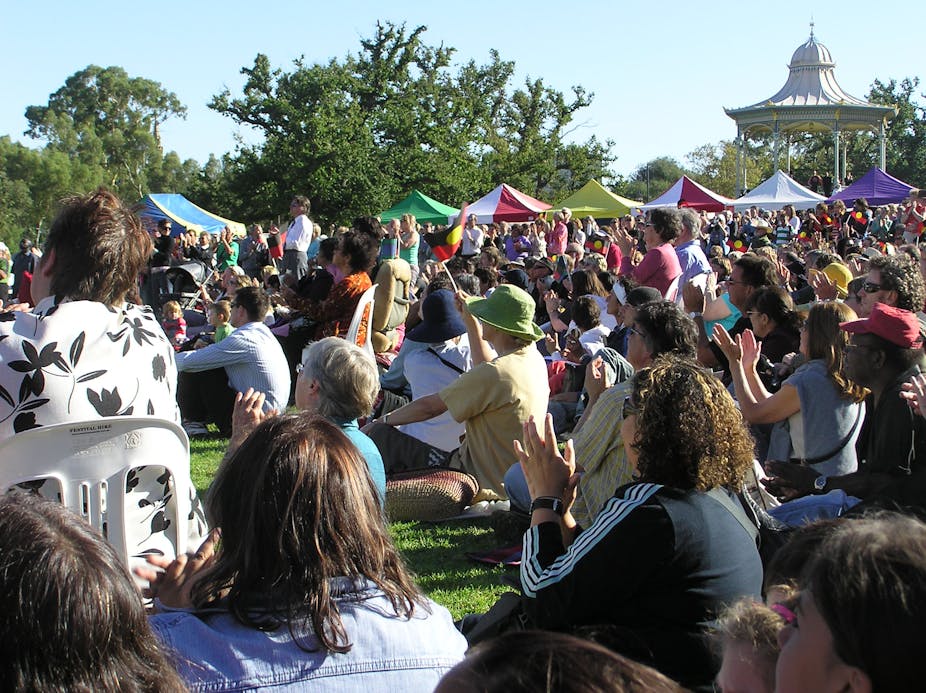A bill before South Australian parliament would make it the second Australian state to compensate Stolen Generation survivors and their children. Tangible recognition of their suffering is overdue, but the Stolen Generations (Compensation) Bill could be improved. The bill risks adding insult to injury.
The bill proposes to cap damages for survivors at A$50,000 and for their children at $5000. Any monetary amount will be arbitrary and similar amounts were awarded under 2006 Tasmanian legislation.
The Tasmanian figures simply reflected the $5 million that the state was prepared to spend, divided by the number of successful applications. The Tasmanian law also did not reflect the impact of the landmark Trevorrow case decided in 2007, which awarded $450,000 in general damages and $75,000 in punitive damages to the late Bruce Trevorrow.
The Trevorrow judgment, upheld on appeal in 2010, is from my Canadian perspective an inspiring one. Unlike court cases in Canada that led to a 2006 settlement (under which almost $4 billion has been paid to the 80,000 survivors of Indigenous schools in Canada), it recognised that damages were due for loss of language, culture and family attachments as well as for illegal abuse and apprehension of the children.
A risk of harming rather than helping
The South Australian bill would impose an unfortunate top-down and rushed model. It allows the minister to decide compensation and forces survivors to apply within six months of the bill being passed.
The Canadian experience indicates that the process of applying for compensation can take time, in part because of lost documentation. It can also be traumatic for the survivors. Canada has provisions for the use of adjudicators who are familiar with Aboriginal culture and experiences and for counselling to assist claimants.

The current bill could facilitate re-victimisation because it allows compensation to be denied if the minister determines that removal was in the child’s best interests. Forced assimilation was based on the racist idea that removal from Indigenous families and culture was often in the child’s best interests. This provision unfortunately replicates such colonial conceits.
The bill also provides that compensation could be denied if the placement was a result of a conviction. One problem is that Indigenous children could in the past be convicted of the crime of being neglected. The bill should take more care not to harm those it intends to help.
Recognition of the collective harms of using schools as a form of forced assimilation and institutional racism is relegated to the non-binding preamble of the SA bill.
Unlike a bill introduced in the SA legislature in 2010, it has no provisions for providing survivors with a forum to discuss their experiences and for funding to help restore what was lost, including language, culture and all too often mental and physical health.
What can we learn from Canada?
The collective aspects of Canada’s 2006 settlement for the survivors of indigenous residential schools have been critical. They included funding (unfortunately now ended) for an Aboriginal Healing Foundation. This funded both community initiatives and research into the best means to deal with the direct and intergenerational harms of the schools.
The Canadian settlement also provided funds for commemoration and education, as well as a Truth and Reconciliation Commission. Since 2008, this commission, composed of two Indigenous and one non-Indigenous commissioners, has taken thousands of statements from those affected by the schools. It has community and larger national forums. It has engaged in public education.
The Canada commission has issued two interim reports and will release a final report next year. It will also establish a permanent research centre in the hope that all Canadians never forget the painful legacy of the schools as a grotesque and failed social experiment in forced assimilation.
The only report contemplated in the SA legislation is the minister’s annual report.
The best Australian approach will not be a carbon copy of the Canadian approach. It must reflect the aspirations of those Aboriginal and Torres Strait Islanders who were harmed by the schools. It should also allow all Australians to learn about the schools. We risk re-imposing the harms of the schools if we do not allow Indigenous people to decide the best way to deal with the pain these schools caused.
Justice for the Stolen Generations is overdue, but it should not be rushed, imposed or cheap justice. The legislators of South Australia should listen carefully to the criticisms of the compensation bill, especially those coming from the Indigenous communities that it is meant to benefit.

